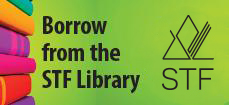Financial Literacy 20, 30
Course Configurations
FINL8
Module 8: Conducting and Monitoring Financial Transactions (Core)
Outcome
Explore documents and processes used to conduct and monitor common financial transactions.
Indicators
| (a) | Discuss common financial transactions (e.g., deposits, withdrawals, direct deposits, e-transfers, issuing/cashing/depositing cheques, pre-authorized payments and direct deposits). |
| (b) | Identify common financial transactions and service charges reported on an account statement. |
| (c) | Explain how an e-transfer works for both the sender and the recipient. |
| (d) | Research stop payment options for an e-transfer. |
| (e) | Discuss the importance of monitoring one’s financial transactions and account statements for accuracy. |
| (f) | Discuss ways to monitor financial transactions manually and using technologies. |
| (g) | Research terms and conditions commonly associated with an account, such as the process and time restriction for reporting inaccuracies on a bank statement or the rules for clearing fraudulent items. |
| (h) | Research emerging payment trends. |
Loading...


R008607
Money and Finances
This Government of Canada website has current information on concepts related to financial literacy. There is a useful search menu to locate information on specific course topics. The content is written suitably for students and some topics include videos, tools and calculators, online courses and modules that may be useful for use in the classroom.
Links :
Website
Media and Formats :
Website
Price :
Free


Record posted/updated:
February 8, 2022

R009186
Budgeting 101: From Getting Out of Debt and Tracking Expenses to Setting Financial Goals and Building Your Savings, Your Essential Guide to Budgeting
This resource provides practical ideas for creating a budget and designing a plan for financial security. Topics include: What a Budget Is (and Isn't), Setting Your Financial Goals, Take Charge of Debt and Budget Rebuilding Events.

